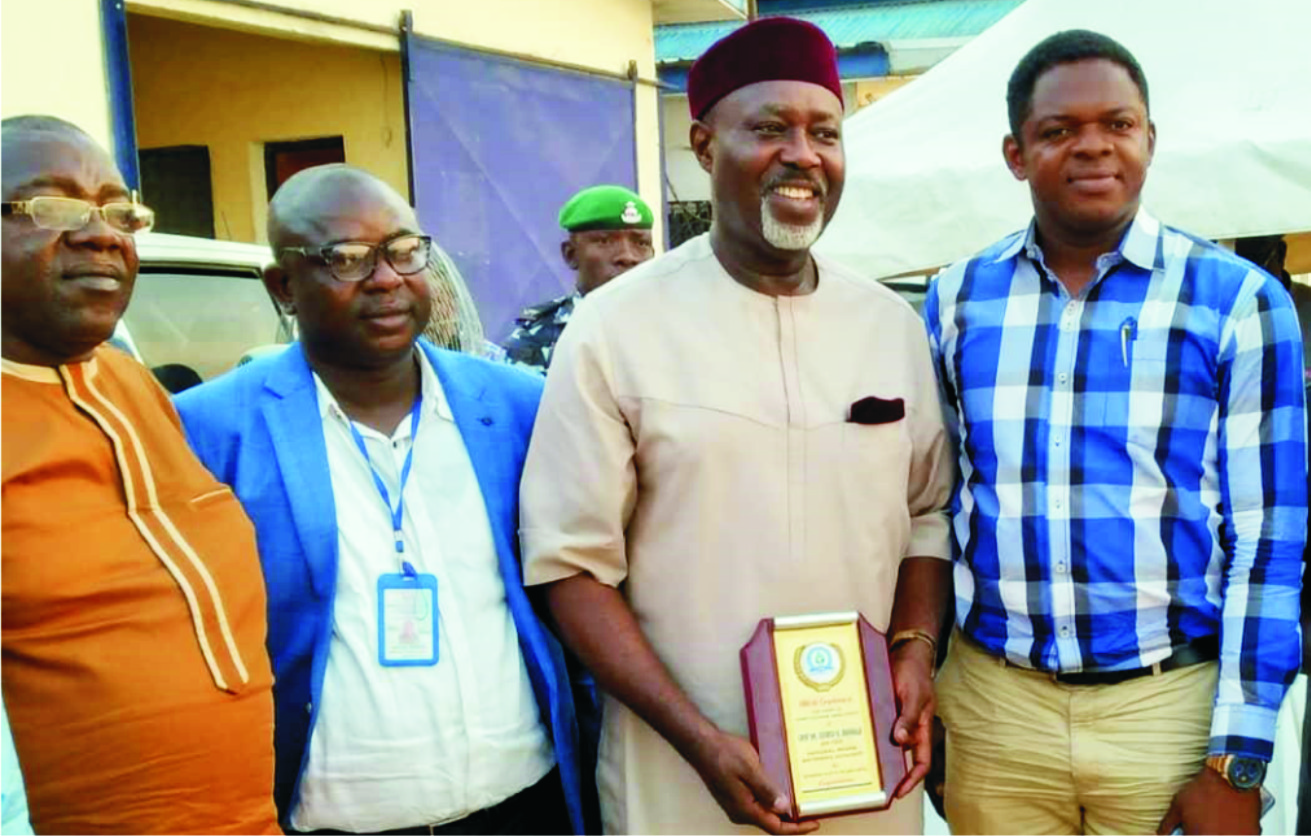Maritime
Customs Loses N2.3bn Daily To COVID-19

The Nigerian Customs Service (NCS) says the lockdown in Lagos State, arising from the Coronavirus pandemic has caused the service to lose its daily revenue of N2.3 billion in the state.
The lockdown was imposed by the Federal Government on Lagos State to curb the spread of the COVID-19 pandemic.
This was contained in a statement by NCS Public Relations Officer, Apapa Area Command, Nkiru Nwala.
Nwala disclosed that the Customs’ top three revenue generating commands namely the Apapa Area Command, Tin Can Island Port Area Command and PTML Area Command were collectively losing N2.3 billion daily to the lockdown.
She said the Apapa Area Command, which she described as the highest revenue collecting command of the NCS, recorded an average collection of N900 million daily as against its daily target of N1.8 billion.
Nwala noted that the effect of the lockdown would have been minimal on the command’s revenue generation if the banks had opened for operations.
“As you know, none of the activities in the port was stopped but the major issue here are the banks and there is little we can do without the banks. Duty payment is beyond online transaction, it has a whole lot of documentations that is required more than transfer.
“On Wednesday, we got N949million. If the banks were open, it would have been a bit different but I learnt the banks have been asked to open. Since the bank will be opened by weekend, I am sure the revenue will improve”, she said.
The Tin Can Island Port Command, which is the second highest Customs revenue collecting command, has also been recording a shortfall of N700million daily in its revenue collection since the lockdown, according to its spokesman, Uche Ejesieme.
“Before now, we are on the average of N1.5 billion to 1.7 billion daily but I don’t think we are making that much now. For now, we are between N800 and N900 million daily collections since the lockdown.
“We hope that by the time the bulk operators that pay in bulk come in, it is going to boost our revenue.
“The major problem is because the banks are not working despite the directive that they should work. The agents confirm that they can’t even do a single transaction in the banks. The jobs are interwoven; one agency cannot operate without the other. The situation expectedly has affected revenue generation.
“Beyond the fact that some of the agents cannot go to the banks to pay, some are actually doing e-payment but if you look at the percentage of e-payment and manual, the difference is huge. We are hoping that sooner than later, some of the challenges will be ameliorated.
Also speaking, spokesman, PTML, Area Command, Tin Island Port Complex Yakubu Muhammed, said the lockdown has negatively impacted the revenue generation of the command as most of the agents cannot come over to lodge their declarations.
He said the command’s revenue declined from a daily collection of N900million to N189 million while number of declarations also dropped from 1300 daily to 100.
“Our daily official revenue target is N1 billion but on the average, we collect between N600 million and N900 million. If you look at what we have from Tuesday (last week) when the lock down started, the rate has really dropped”, he said.
Chinedu Wosu
Maritime
CUSTOMS BEGINS IMPLEMENTATION OF SAFE PASSAGE FOR PERSONAL VEHICLES UNDER TEMPORARY ADMISSION

Maritime
APAPA CUSTOMS RECORDS N2.9TR REVENUE IN 2025

Maritime
MARITIME JOURNALISTS TO HONOUR EX-NIWA MD,OYEBAMIJI OVER MEDIA SUPPORT

-

 News4 days ago
News4 days ago2026 Budget: FG Allocates N12.78bn For Census, NPC Vehicles
-

 Sports4 days ago
Sports4 days agoAFCON: Osimhen, Lookman Threaten Algeria’s Record
-

 Politics4 days ago
Politics4 days agoWike’s LGAs Tour Violates Electoral Laws — Sara-Igbe
-

 Politics4 days ago
Politics4 days agoRivers Political Crisis: PANDEF Urges Restraint, Mutual Forbearance
-

 Sports4 days ago
Sports4 days agoPalace ready To Sell Guehi For Right Price
-

 Sports4 days ago
Sports4 days agoNPFL To Settle Feud between Remo Stars, Ikorodu City
-

 Sports4 days ago
Sports4 days agoArsenal must win trophies to leave legacy – Arteta
-

 Sports4 days ago
Sports4 days agoTottenham Captain Criticises Club’s Hierarchy

